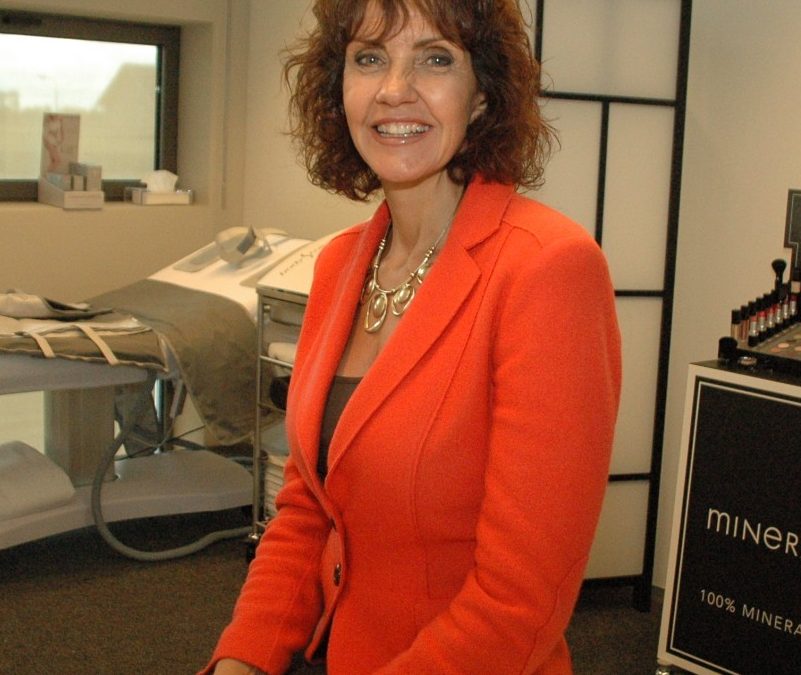
Can women succeed in an international career?
All companies today are enhancing diversity. But internationally, women have the status of following spouses rather than senior executives.
Women international career or expatriate spouses? Today, when we talk about expatriate women, we think more of « following » spouses. More than 4 out of 5 French people expatriate as a couple, and in 9 out of 10 cases, it is the woman who follows her spouse in expatriation, according to a survey by Expat Communication, la Caisse des Français de l’Etranger and Humanis. These women take time to find jobs or find jobs that do not meet expectations in terms of responsibilities and pay, with the feeling of « sacrificing » their careers.
And while international mobility is a real springboard for the careers of senior executives, the average expatriate position offered to women is 15 to 20%.
L’Oréal encourages international mobility for women
A feminised group. Women have an important place at l’Oréal and represent 70% of the company’s total workforce, 62% of managers, 33% of the members of the Executive Committee and 46% of the members of the Board of Directors (results published in December 2016).
L’Oréal, international accompanist for women. Inciting women to international mobility, the group wants to show women that it is as possible for them as men to leave and build a professional life abroad. Result? At the end of 2009, they represented 30% of expatriate employees and nearly 42% of new expatriates, thanks to well thought-out and well followed support programmes (preparation for departure, support for spouses, etc.). Other companies that support women internationally include Danone, which designed the EVE programme in partnership with L’Oréal, Orange, la Caisse des Dépôts group, SNCF, Crédit Agricole and KPMG. Of the 700 Danone managers working abroad, 20% are women.
And these figures are still likely to change with the arrival of young generation women (generation Y and Z in particular) on the labour market, 71% of whom want to work abroad. The expatriation of women is only at its beginning.
« The myth of the inexpatriable woman », Olivier Mérignac
Clichés, modern poison. Women represent half of the active population in the 21st century, now occupy 30 to 50% of positions of responsibility and are as well qualified as men. However, only 15% of women in large companies occupy expatriate positions, whereas mobility is a real lever for promotion. Why? The taboos inscribed in the minds of the employees themselves, the directors and the spouses, undermine women’s access to international mobility and follow them when they manage to move abroad. Olivier Mérignac reports that « persistent myths and prejudices concerning women, their relationship to mobility, and their ability to adjust and succeed during expatriation » persist in companies.
Recruitment bias. What are they? Companies think that they do not want to leave, that they are « more reasonable and less ambitious » (Françoise Cazalis de Fondouce), that they do not want to destabilize their families. And since women earn less than their husbands, career choice will be made on the highest salary. As a result, little information is available on vacancies for women. The international mobility manager of a chemical company said that « women are less willing to make these personal sacrifices (…) and they are right to want to prioritize their family life » (Olivier Mérignac, « Women in the expatriation process« , Travail, genre et sociétés).
Prejudices about adjustment difficulties. An international mobility manager in the automotive sector exclaimed: « for an expatriation where it is necessary to play elbows to make its place, their sensitivity handicape them » (Source: Olivier Mérignac). Expatriates are not only challenged for their adaptability but also because of their status as women who exclude them from business in some countries. It is thought that they will find it difficult to be accepted by their staff in the host country and that it will be difficult for them to adapt to a new professional and cultural environment. The person in charge of international mobility in the agri-food sector notified that « some Asian executives get upset when they see women arriving » (Source: Olivier Mérignac).
However, women succeed as well as men in their expatriation mission, the objectives are achieved and the expatriation is completed. Moreover, they are so used to facing discrimination that they are sometimes better able to assert themselves and their rights.
Age as an expatriation factor. Women expatriates are often young or senior (under 30 or over forty). They are not expected to leave when they are of childbearing age, whereas 70% of expatriate men do have families and children.
Women’s self-censorship. Faced with so much prejudice, discouraged, they tend to censor themselves and do not apply when they see a job offer for a job abroad, not imagining leaving because of their spouse’s career or family situation, and being convinced that they will not be selected by the company.
A rebalancing of roles within the couple should be considered to enable women in their thirties to succeed in their careers.
Times change, so do women. Françoise Cazalis de Fondouce reports that « expatriation for women is becoming a real trend. For several reasons: first, sectors traditionally providing expatriates are feminizing, such as industry, engineering, auditing and finance. Women are no longer afraid to leave, « Some have studied or interned abroad, have gone to Erasmus, and are no longer afraid to leave. Culture, education, pharmacy, luxury become sectors where it is no longer rare to transfer a woman abroad. Finally, some companies are now keen to promote, through diversity programmes, the accession of women to management positions.
Union is strength. Today, there are no fewer than 200 professional networks for women. The EVE program, of course, at Danone and L’Oréal, but also Elles and WIT (Women in Technology) at IBM, O’Pluriel at Air Liquide, Mu’Tu’Elles at La Macif, Think’Elles at Lenovo, Inter’Elles at EDF, 50/50 at HSBC, Alter gales at Caisse des Dépôts.
Conclusion: Supporting women
Finally, once prejudices have been overcome, the same support can be offered to women and men:
- Clarify the issues and expectations of the position
- Develop intercultural skills (Understanding cultural differences, Communication, Team motivation, Uncertainty management)
- Accompanying you to your new position (90 days)
- Strengthening leadership and impact
- Support the spouse’s career (and/or retraining)
- Anticipate and prepare the return to transfer the new skills acquired abroad
As for expatriate men, in order to succeed in their international mission, women can benefit from support from the moment they take up their position, to develop their intercultural and feminine leadership.



 Expatriates who successfully adapt (not those who freeze their positions on anger or denial) take a fresh look at both the situation in office and the context and organization in the country. Openness to new cultures offers new ways of seeing, ways of doing things, ways of being. They have to create new solutions and to use approches their are not familiar with.
Expatriates who successfully adapt (not those who freeze their positions on anger or denial) take a fresh look at both the situation in office and the context and organization in the country. Openness to new cultures offers new ways of seeing, ways of doing things, ways of being. They have to create new solutions and to use approches their are not familiar with.
 Isabelle Goyon – Global Coaching for Expats works with executives, managers, expats & partners, men & women all over the world, who want to successfully overcome the high stakes of challenging transitions by improving:
Isabelle Goyon – Global Coaching for Expats works with executives, managers, expats & partners, men & women all over the world, who want to successfully overcome the high stakes of challenging transitions by improving: 











